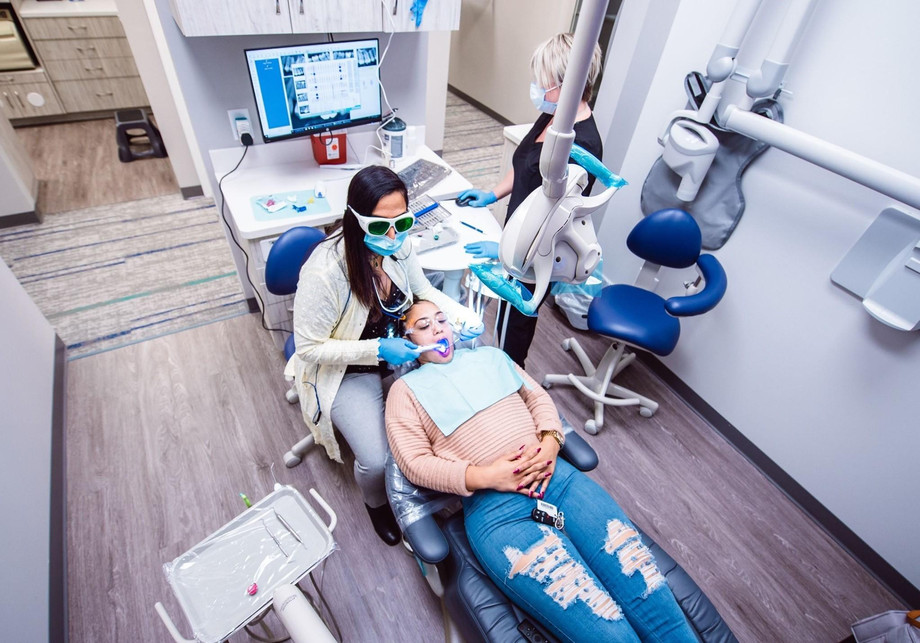Sleep apnea, a serious sleep disorder characterized by repeated interruptions in breathing during sleep, affects millions of people worldwide. In Charlotte, individuals struggling with this condition have access to a range of treatment options designed to alleviate symptoms and improve overall health. This article provides a detailed overview of sleep apnea treatment options available in Charlotte, helping you understand how to find the right solution for a better night's sleep.
Understanding Sleep Apnea
Sleep apnea occurs when the upper airway becomes blocked during sleep, leading to pauses in breathing that can last for seconds or minutes. These interruptions can cause fragmented sleep and decrease oxygen levels, leading to a host of health issues including daytime fatigue, cardiovascular problems, and impaired cognitive function. There are three main types of sleep apnea:
Obstructive Sleep Apnea (OSA): The most common form, caused by a physical blockage of the throat.
Central Sleep Apnea: Results from a failure of the brain to signal the muscles to breathe.
Complex Sleep Apnea Syndrome: A combination of OSA and central sleep apnea.
Treatment Options for Sleep Apnea in Charlotte
Continuous Positive Airway Pressure (CPAP) Therapy: CPAP is the most common and effective treatment for obstructive sleep apnea. This therapy involves using a machine that delivers a steady stream of air through a mask, keeping the airway open during sleep. In Charlotte, several sleep centers and medical facilities offer CPAP therapy, including options for personalized mask fitting and equipment maintenance.
Auto-Titrating Positive Airway Pressure (APAP) Therapy: Similar to CPAP, APAP devices adjust the air pressure automatically based on the patient's needs throughout the night. This can provide a more customized approach and improve comfort for some individuals.
Bilevel Positive Airway Pressure (BiPAP) Therapy: BiPAP machines offer two levels of air pressure: higher pressure during inhalation and lower pressure during exhalation. This type of therapy is often used for patients who have difficulty tolerating CPAP or require higher pressure settings.
Oral Appliances: Also known as dental devices or mandibular advancement devices (MADs), oral appliances are designed to keep the airway open by repositioning the lower jaw and tongue. These devices are a viable option for individuals with mild to moderate sleep apnea or those who cannot tolerate CPAP. Many dental specialists in Charlotte are trained in fitting and managing these devices.
Lifestyle Changes: For some individuals, making lifestyle adjustments can significantly improve sleep apnea symptoms. Recommendations may include losing weight, avoiding alcohol and sedatives, quitting smoking, and sleeping on your side rather than your back. In Charlotte, weight loss clinics and wellness centers often offer support and programs to help with these changes.
Surgical Options: When non-invasive treatments are not effective, surgical options may be considered. Surgical procedures can include:
- Uvulopalatopharyngoplasty (UPPP): Removal of excess tissue from the throat to widen the airway.
- Genioglossus Advancement (GA): Repositioning the tongue muscle attachment to prevent airway collapse.
- Inspire Therapy: A surgically implanted device that stimulates the airway muscles to keep the airway open.
Charlotte has several specialized ENT (ear, nose, and throat) surgeons and sleep centers that can provide evaluations and surgical interventions for sleep apnea.
Sleep Studies and Diagnostic Testing: Accurate diagnosis is crucial for effective treatment. Sleep studies, conducted in a sleep clinic or at home, monitor your sleep patterns and identify the severity of sleep apnea. Charlotte offers various sleep centers where you can undergo comprehensive sleep evaluations and receive expert diagnosis.
Finding the Right Sleep Apnea Treatment in Charlotte
Consult with a Sleep Specialist: Begin by consulting a sleep specialist to discuss your symptoms and explore treatment options. Charlotte is home to numerous sleep clinics and medical centers with experienced professionals who can provide personalized care.
Consider Multidisciplinary Care: Managing sleep apnea often involves a team approach. Look for centers in Charlotte that offer multidisciplinary care, including collaboration between sleep specialists, pulmonologists, ENT doctors, and dental professionals.
Evaluate Treatment Options: Assess the pros and cons of different treatments based on your specific needs and lifestyle. A specialist can help you weigh factors such as effectiveness, comfort, and long-term management.
Seek Support and Education: Engage with support groups and educational resources available in Charlotte. These can provide valuable information and emotional support as you navigate your treatment journey.
Conclusion
Sleep apnea is a condition that requires timely and effective treatment to prevent serious health consequences and improve quality of life. In Charlotte, a variety of treatment options are available to help manage and alleviate symptoms, from CPAP and APAP therapies to oral appliances and surgical interventions. By consulting with qualified specialists and exploring the treatment options suited to your needs, you can take proactive steps towards better sleep and overall well-being.
For More Info:-
sleep apnea treatment charlotte





Comments